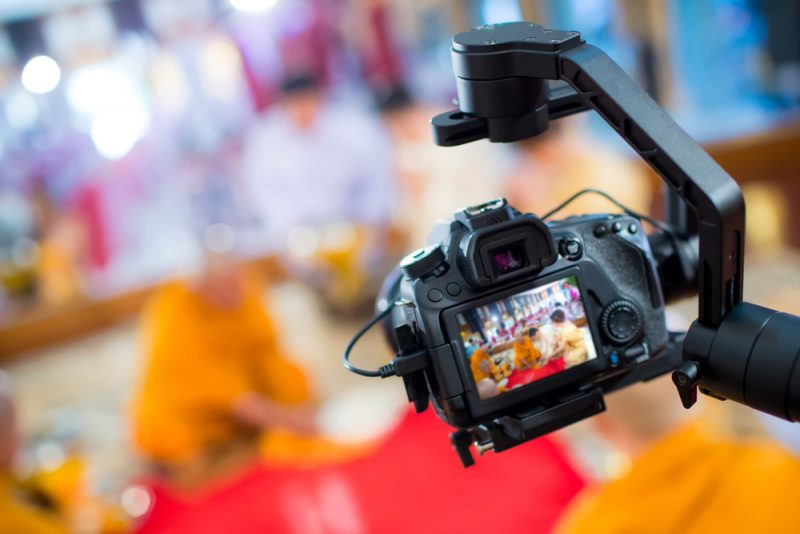Julia: Hi, this is Julia with Prison: The Hidden Sentence™ and I’m here at the International Prisoners Family Conference speaking with Fury Young, founder of Die Jim Crow. Fury, last year we spoke about what you’re doing and if you could you update us and what you’ve accomplished in the past year.
You can listen to the interview here:
(Minor edits for readability)
Fury: My name is Fury Young and I’m the producer of Die Jim Crow. I met Julia last year at the conference and hit it off and a lot has happened since then. Just for those who don’t know, briefly, the album is a concept multimedia album involving music and art books and music video and documentary which is about the black American experience in the era of mass incarceration and it’s been in production for a few years now and the full length album will be out in 2020. And in the past year I’ve met some people who helped me get access into Colorado Department of Corrections.

Julia: That’s wonderful.
Fury: I also have some rehearsals set up for South Carolina on my way back north.
Julia: You’ve done so much. We got to hear a clip from the album and one of the songs and everybody here was just so excited about it.
Fury: They saw a little bit of the video for Headed to the Streets, too.
Julia: It’s amazing just the growth from last year. I remember when we spoke, and you were talking about getting it together and you got in to the prison and were talking about the music that you made. Since then you’ve made several more connections and added more tunes to the album.
Fury: It’s been a slow process. I mean it’s very grassroots as you know, I mean what you do is pretty grassroots too, Prison: The Hidden Sentence. I encourage people to check that out and it’s just part of the struggle, but it’s also worth it.
Julia: Oh yeah, I mean what Fury’s doing hasn’t been done before. He’s actually been able to get in to some of the prisons and there’s talented people that are in there that play instruments, that sing, that write music, that are artists that write. And he’s been able to tap into some of those artists and to put it together like he said in the book and the LP, do people still say LP?
Fury: Yeah.

Julia: It’s a LP that’s coming out, vinyl, and it’ll be out there. So what do you think of the conference this year too?
Fury: I think it’s cool. I as always meet cool people and people who are really inspiring, people who are just sort of doing their thing with no permission and no apologies and that’s my style. So it’s good to meet like-minded people.
Julia: Every time I hear the music, I just really see it as being a musical and I really hope that once you get it out there that you can get the support and the resources that you need and the talent to put it all together because I really see it out there as something that’s going to touch so many people. You tell a story, it’s not just music.
Fury: Right.
Julia: It starts from the beginning of somebody’s life, doesn’t it?
Fury: Yeah. Well that’s why the multimedia aspect is really important because through getting those resources that you’re talking of and that funding we’ll be able to have a documentary component that tells all those stories. Not just through song but through video and through literature. The EP book that we put out was a really good first step, it tells some of those backstories and the Headed to the Streets music video and the First Impressions music video, which is being edited right now, were also great additions. But I think it would be great to have potentially a documentary, a short documentary for each song on the album. So for instance there’s a song off the EP called Tired and Weary, it’s about a guy named Anthony McKinney who’s doing 28 years to life for a murder that he maintains he didn’t commit and I think you could just do a short 10 minute doc about that. You could go to Columbus, Ohio, you could interview the DA, you could interview the detectives, you could interview the people in the neighborhood, the guy who actually did commit the murder who’s in prison for something else, you could interview Anthony. So there’s so much that even just one song and one story share. One cool thing about it is that there’s so many different people and they’re all kind of amalgamated into one narrative.

Julia: There’s so many people here and so many stories and you’ve touched on some stories for people that are currently incarcerated and have talents and doing things out there. So there’s really a good way to tell their stories too.
Fury: Right.
Julia: So, you were talking about how you can take each of those stories and turn it into a mini documentary?
Fury: Absolutely.
Julia: So people will start to see them as people. Because a lot of times people think well, they’re over there, it’s us and them however they’re people too. So I think telling their story will be really valuable and make it more humane for the people who are inside.
Fury: And the purpose of Die Jim Crow and the mission statement of the non-profit which we just started to form is to provide currently and formerly incarcerated musicians with a platform through high quality multimedia art formats. And I think that the music is a really interesting angle to tie these stories together and then to have that documentary component is another avenue for a high quality format in which those stories can all verge. There are so many prison stories and to incorporate the music and what got these people interested in music or writing in the first place or the arts is really a unique thing that really at least draws me in. But I think it would appeal to others as well.

Julia: I think it’s therapeutic for the people on the inside but it’s also entertaining and gives people on the outside insight. So, I think it all around it’s a win-win situation and I just can’t wait to see the finished product. I know it’s going to be a while.
Fury: Yeah.
Julia: Another year?
Fury: Two.
Julia: Okay. A year or two but in the interim you’ve got the EP book, you’ve got some CD’s and still some great stories, so stay tuned. So we’ve been talking to a lot of people here and I know that you’ve been looking at other places to go. So what are your plans for the next couple places to find people to be a part of the album?
Fury: I’m looking into Louisiana, Angola. I have a meeting at CMCF, Central Mississippi Correctional Facility. I am waiting to hear back from Indiana and I’m hoping to get in to California. Texas, seems like I’m making a few connections here that might help with that and somewhere in Africa and somewhere in Ireland actually.
Julia: Oh that’ll be amazing.
Fury: Yeah.
Julia: Look how far you’ve come since we last spoke and all the places that you have lined up now and all the connections that you’ve made. I mean just think about it’s not that easy to get in to a prison and say “Hey, I’d like to record in your prison.”
Fury: Well this is a great opportunity to thank someone named Justin Jones who was the Corrections Director in Oklahoma for eight and a half years and he’s a colleague that I met in August of last year. He loved the project and he’s been introducing it to current directors of different DOC’s nationwide. So that’s how I’ve gotten in to South Carolina and Colorado, is really through Justin.
Julia: And it’s your perseverance too.
Fury: Sure. But it helps to have a former corrections director and one who’s really down to earth and in it for the right reasons.
Julia: Well that’s great. You made the right connection, you’re moving forward, you’ve got all these other places lined up and you’re going to be making some great music.
Fury: Thank you. Now the challenge is just building that foundation and those resources that you speak of and getting the funding to really go the full mile.
Julia: Well I don’t have any doubts that you’re going to get it, it’s a wonderful project and I just know that you’re going to be successful.
Fury: Thanks so much.
Julia: So all the artists that are going to be in this LP, what’s in it for them?
Fury: Well that’s why I started the non-profit because it’s going to level the playing field for everyone. So essentially no one gets royalties now, including myself. I like that model because it takes away the money side to things and it becomes just more of an egalitarian effort for all parties to give back to these folks and the folks still in there. My board of directors and I are going to have to figure out what the fairest business model is in terms of how people can participate financially, if at all. And I do think that they should be paid something. Per the mission statement it’s an opportunity to be involved in high quality multimedia art formats, but is that enough? I don’t know. Personally, I don’t think so, but I am excited to have a board of directors that can help with that decision.
Fury: So that’s kind of more of an open-ended thing, as of now. Prior to the non-profit we were sort of a loose for-profit, it was never formal though. There was no business model set up and we were going to give royalties to formally incarcerated artists but every DOC that I would get access to would say “No, you can’t give royalties to currently incarcerated artists.” So my philosophy is if one person eats, everyone should eat and if one person can’t eat then we all can’t eat. So I need to really figure out what the best way to be fair about that aspect is.
Julia: That makes sense. So, there’s more to come and we’ll hear more about it and I just, like I said, I just think it’s an awesome project and I look forward to hearing more music and I can’t wait to see the musical.
Fury: That’ll be the day. I thank everyone who has supported this trip. We have a little mini crowdfunding thing going on right now and people have been very supportive. So I just wanted to thank everyone who has helped out. Thank you everyone who’s supported and thank you, Julia.
You can follow Fury’s journey at Die Jim Crow on Facebook: https://www.facebook.com/diejimcrow/

Globaltel says
The multimedia aspect is really important because through getting those resources that you’re talking of and that funding we’ll be able to have a documentary component that tells all those stories. Not just through song but through video and through literature. The EP book that we put out was a really good first step, it tells some of those backstories and the Headed to the Streets music video and the First Impressions music video, which is being edited right now, were also great additions. But I think and highly suggest it would be great to have a documentary, a short trailer for each song on the album.
Editor says
We agree.